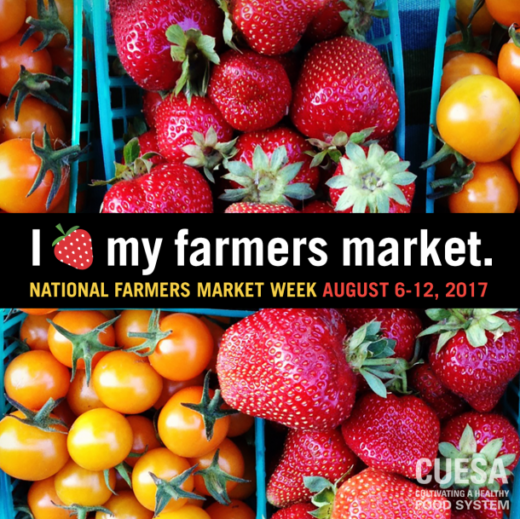This week is National Farmers Market Week (August 6-12, 2017), all the more reason to show your gratitude and support for local food and farmers. By shopping at your local farmers market, you help keep family farming viable and grow healthy communities.
Farmers markets are going strong, with more than 8,692 farmers markets nationwide, and 760 in California alone. From savoring produce at the peak of freshness to keeping dollars in our local economy, there are countless reasons to support farmers markets. Here are just a few. Spread the word and share why you support farmers markets!
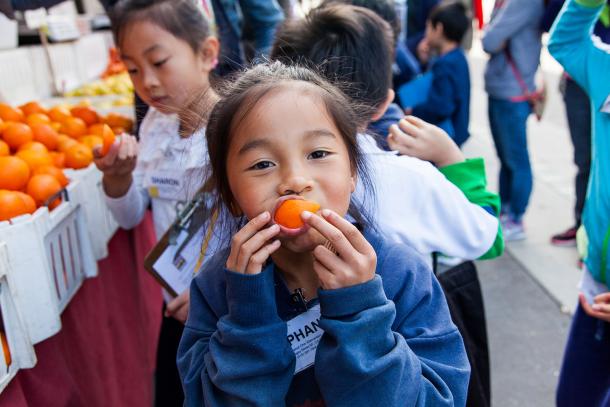
1. Taste Real Flavors
The fruits and vegetables you buy at the farmers market are the freshest and tastiest available. Fruits are allowed to ripen fully in the field and are brought directly to you—no long-distance shipping, no gassing to simulate the ripening process, no sitting for weeks in storage. This food is as real as it gets—fresh from the farm.
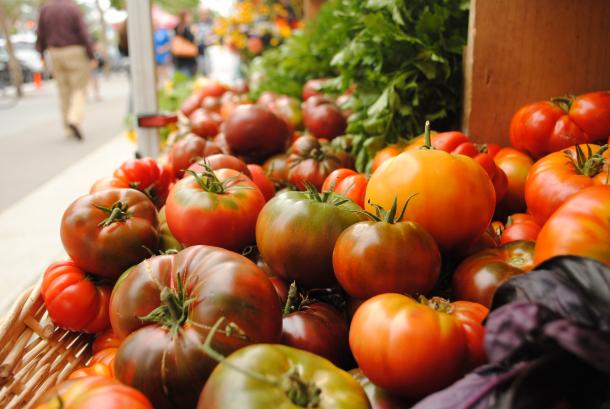
2. Enjoy the Season
The food you buy at the farmers market is seasonal. It is fresh and delicious and reflects the truest flavors. Shopping and cooking from the farmers market helps you to reconnect with the cycles of nature in our region. As you look forward to asparagus in spring, savor sweet corn in summer, or bake pumpkins in autumn, you reconnect with the earth, the weather, and the turning of the year. Find out what’s in season at your local farmers market right now.
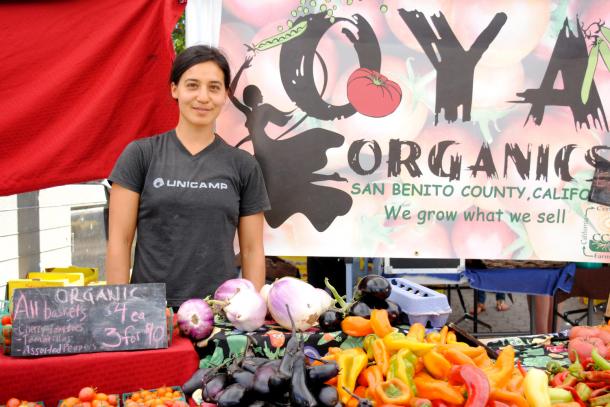
3. Support Family Farmers and Your Local Economy
Family farmers need your support, now that large agribusiness dominates food production in the U.S. Small family farms have a hard time competing in the food marketplace. Buying directly from the farmer gives them a better return for their produce and gives them a fighting chance in today’s globalized economy. According to the Farmers Market Coalition, growers selling locally create four times as many jobs as those not selling locally, and return three times as much of their sales to the local economy compared to those who sell through chains.
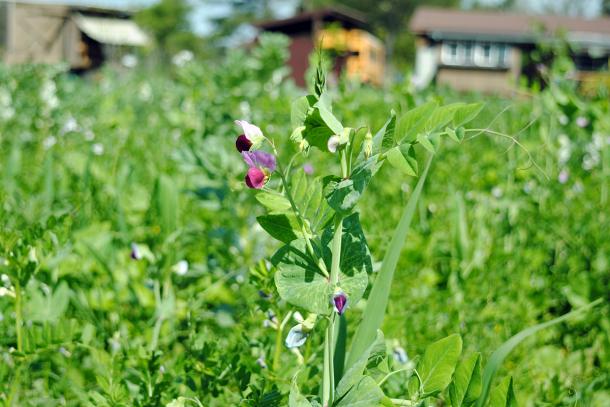
4. Protect the Environment
Food in the U.S. travels an average of 1,500 miles to get to your plate. All this shipping uses large amounts of natural resources (especially fossil fuels), contributes to pollution, and creates trash with extra packaging. Conventional agriculture also uses many more resources than sustainable agriculture and pollutes water, land, and air with toxic chemicals. Food at the farmers market is transported shorter distances and is generally grown using methods that minimize the impact on the earth. According to the American Farmland Trust, 48% of farmers market farmers use integrated pest management techniques, and 81% use soil health practices like cover crops, reduced tillage, and composting. At CUESA farmers markets, more than half of the farmers are certified organic.
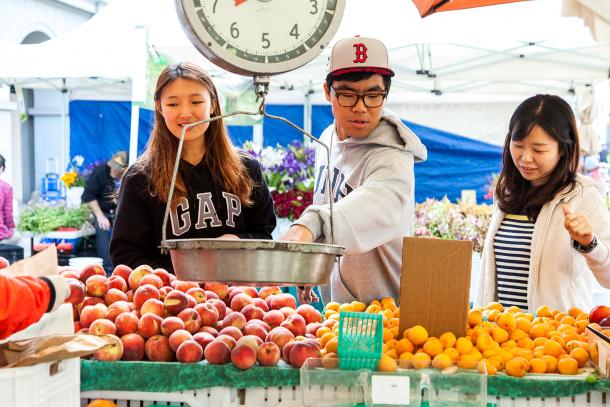
5. Nourish Yourself and Your Community
Much food found in grocery stores is highly processed and grown using pesticides, hormones, antibiotics, and genetic modification. Some of it has been irradiated, waxed, or gassed in transit. These practices may have negative effects on human health. In contrast, most food found at the farmers market is minimally processed, and many of our farmers go to great lengths to grow the most nutritious produce possible by using sustainable techniques, picking produce right before the market, and growing heirloom varieties.
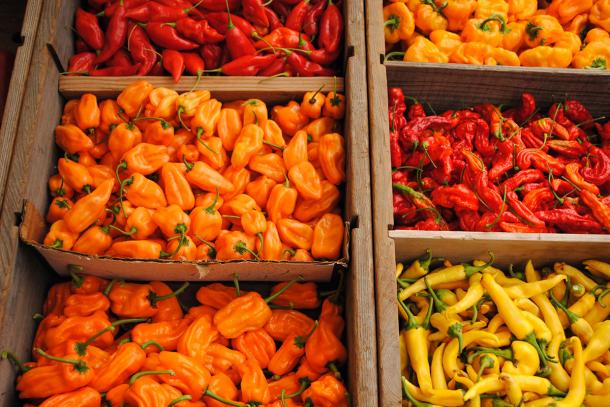
6. Discover the Spice of Life: Variety
At the farmers market you find an amazing array of produce that you don’t see in your average supermarket: red carrots, a rainbow of heirloom tomatoes, purple cauliflower, stinging nettles, green garlic, watermelon radishes, quail eggs, maitake mushrooms, and much, much more. It is a wonderful opportunity to explore and savor the biodiversity of our planet.
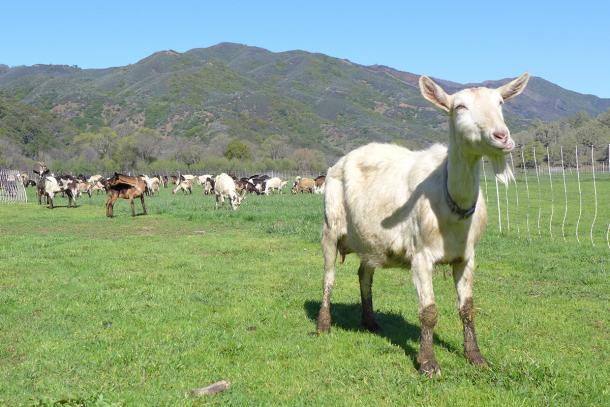
7. Promote Humane Treatment of Animals
At the farmers market, you can find meats, cheeses, and eggs from animals that have been raised without hormones or antibiotics, who have grazed on green grass and eaten natural diets, and who have been spared the cramped and unnatural living conditions of feedlots and cages that are typical of animal agriculture. At the farmers market, you can talk to the rancher and ask them about their practices. Learn more about animal welfare labels.
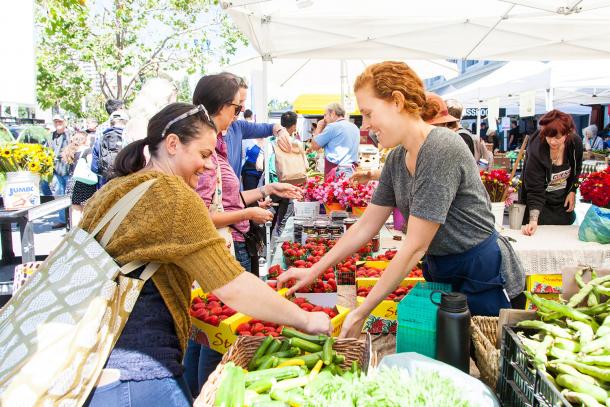
8. Know Where Your Food Comes From
A regular trip to a farmers market is one of the best ways to connect with where your food comes from. Meeting and talking to farmers and food artisans is a great opportunity to learn more about how and where food is produced. Look for CUESA’s laminated seller profile signs clipped to the tent poles on sellers’ booths to learn about the people who work hard to bring you the most delicious and nutritious food around. Profiles, articles about sellers, and a map of farms are also available on the CUESA website.
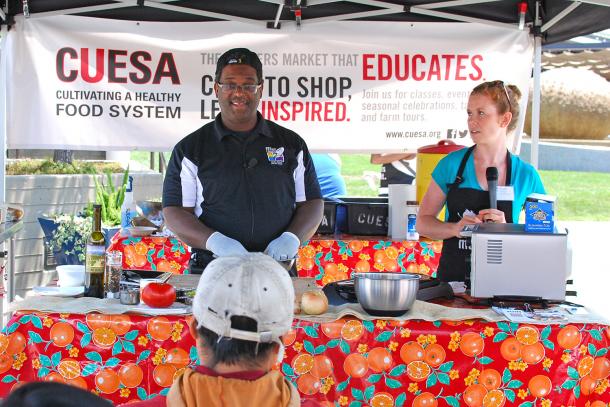
9. Learn Cooking Tips, Recipes, and Meal Ideas
Few grocery store cashiers or produce stockers will give you tips on how to cook the ingredients you buy, but farmers, ranchers, and food crafters at the farmers market are often passionate cooks with plenty of free advice about how to prepare the foods they are selling. At the farmers market, you can also attend free seasonal cooking demonstrations by leading Bay Area chefs.
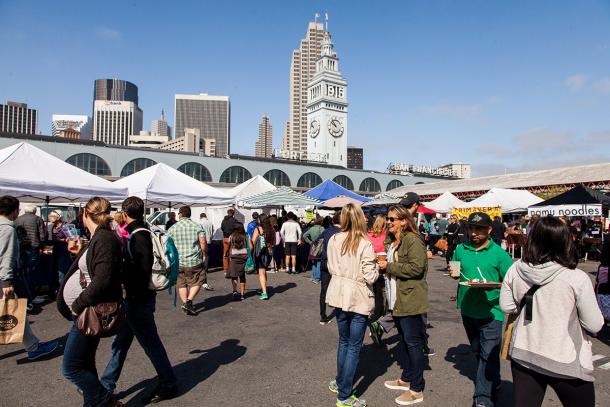
10. Connect with Your Community
People who shop at farmers markets have 15 to 20 social interactions per visit versus 1 to 2 interactions at the grocery store (or none if purchasing food online!). Wouldn’t you rather stroll amidst outdoor stalls of fresh produce on a sunny day than roll your cart around a grocery store with artificial lights and piped in music? Coming to the farmers market makes shopping a pleasure rather than a chore. The farmers market is a community hub—a place to meet up with your friends, bring your children, or just get a taste of small-town life in the midst of our wonderful urban life.
